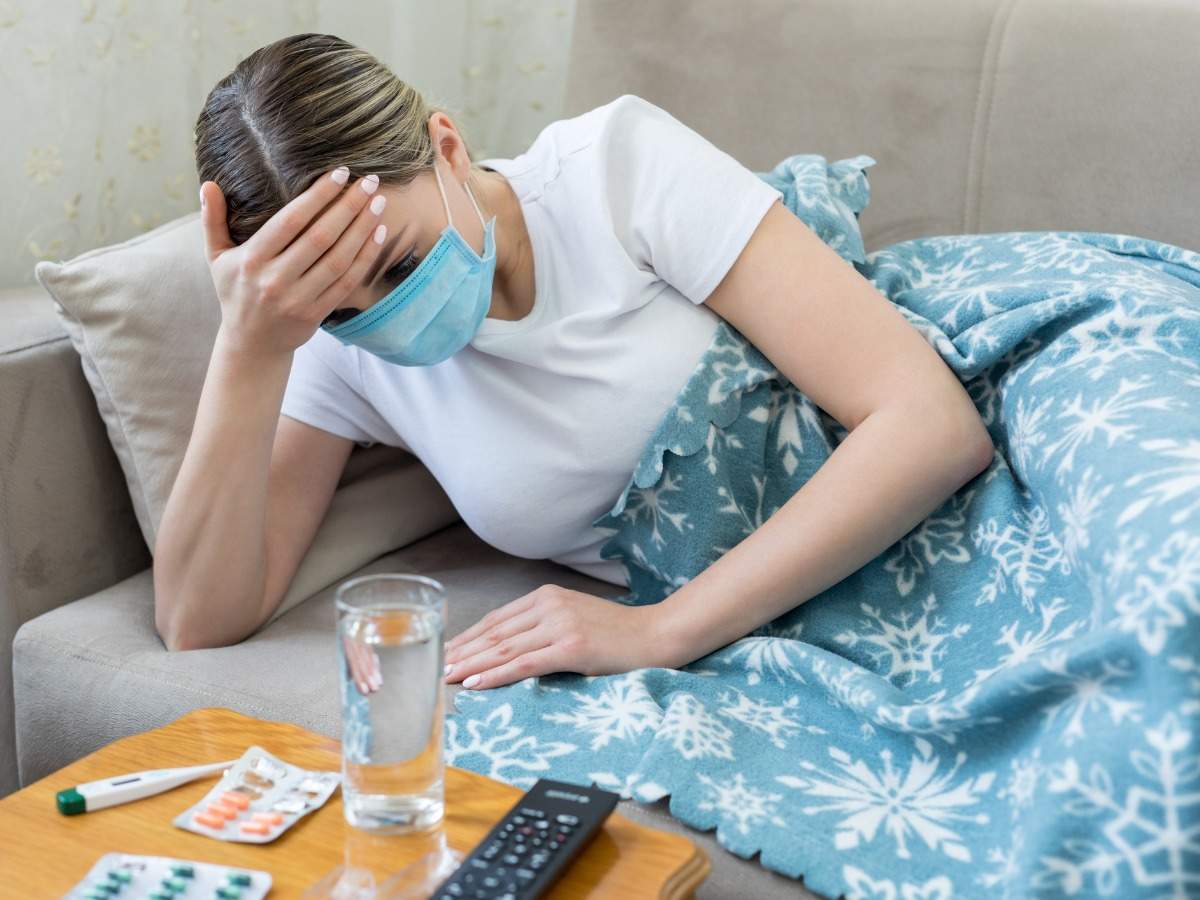Getting vaccinated against coronavirus offers a sense of security in more ways than once.
However, it’s not a complete solution to our pandemic woes.
ALSO READ: Know what you can do and cannot post vaccination
Even so, with vaccination, developing the slightest tickle in the throat or waking up with chills and fever could cause alarms. The fears over the same could be even more heightened during the time when we are constantly hearing of newer virulent strains in circulation.
So, what happens if you suspect your sickness to be COVID-19? What really happens if you fall ill with a respiratory infection or develop a fever?
Should you still get a COVID-19 test? What should you do and when should you worry?
readmore
02/6Remember vaccines do not prevent COVID-19 completely
As helpful as COVID vaccines currently are, they do not work as anti-COVID drugs and the newer variants of concerns that spread may also lower the efficacy rates of the vaccines. So, there is very much a possibility that you can catch coronavirus, after being vaccinated, and hence, no complacencies should be entertained.
Can COVID-19 vaccines reduce long COVID symptoms?
However, do remember that these infections, or breakthrough cases, as they are called, are still rarer in numbers. So, even if there is a real risk of the virus causing infections, the risk is on the lower side. As data as suggested, different vaccines carry a different risk of breakthrough infections and symptomatic risks.
readmore
03/6Identify whether your symptoms are related to the vaccine or other respiratory infections
While COVID-19 is a real cause of concern since some of the symptoms could overlap with infections and vaccination side-effects, what needs to be looked into right now is the onset of those symptoms, and the duration it lasts.
Vaccine side-effects tend to start off hours after inoculation and resolve in a maximum of 3-4 days. On the other hand, COVID infections could start off with respiratory symptoms, cause widespread inflammation and spread quicker as well. The infection is also more likely to occur if you have probably faced any level of exposure, or went to a high-risk place.
Similarly, be aware and on the lookout for how your symptoms progress. If it’s a cold or an allergy, you may not experience symptoms like shortness of breath, or an altered sense of smell and the symptoms may also resolve quicker.
readmore
04/6So, what should you really do if you suspect symptoms?
Since we are still living at a time when the pandemic is not just active but the risks more serious, treating any symptom lightly isn’t advisable COVID or non-COVID-19.
If you do tend to present any symptom which is similar to COVID, or suspect exposure to any possible COVID risk, get a COVID test done at the earliest to avoid problems with a late diagnosis.
Getting tested for COVID, if you have symptoms post vaccination could also doubly help cut down the risk factors for others around you. For example, even if your symptoms are mild, do remember that you can still spread the infection to others. So, getting tested on time could help you take the rightful decisions, quarantine and seek treatment.
readmore
05/6How does getting a vaccine help you?
The newer variants have been found to be able to surpass vaccine antibodies and make them less effective-implying that it somehow increases your risk of being infected. However, that doesn’t render your vaccine bad. As data has shown, vaccinated beneficiaries, who get a breakthrough infection have better outcomes and are less likely to suffer from complications in comparison to someone who may not be unvaccinated.
It’s also important to understand that the effectiveness and protective immunity with a vaccine WILL only build up if you are fully vaccinated. Partial vaccination, or getting a single dose of the vaccine may tame down effectiveness to an extent.
readmore
06/6What to expect if you test positive
Testing positive for coronavirus, even with vaccination may mean that you may need symptomatic treatment, quarantine or isolate, much like others. However, getting the vaccine may save you from the risks of complications, hospitalizations and even mortality, as data as shown.
Depending on the vaccine you get, it can also happen that your symptoms resolve quicker, and the recovery timelines also run short. It could also make your symptoms less severe in comparison, so getting tested, and attending to your illness is helpful.
readmore
read the full story about What happens if you get sick after being fully vaccinated?
#theheadlines #breakingnews #headlinenews #newstoday #latestnews #aajtak #ndtv #timesofindia #indiannews


Leave a Reply